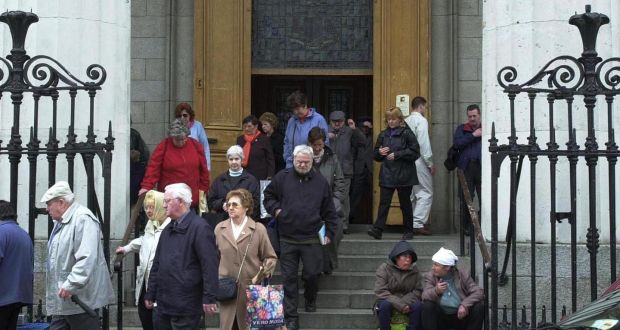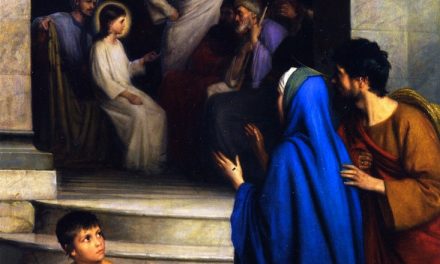The drive to church this past Sunday seemed longer than normal. I live in the Diocese of Greensburg, one of those featured in the Pennsylvania Attorney General’s report on the sexual abuse perpetrated by Catholic priests and covered up by Catholic bishops.
Our kids happily – or perhaps more not unhappily – sat in the back of the car. As we drove, my wife and I talked about how difficult it is to keep going in the wake of yet another sex abuse crisis, another failure of those who are supposed to be leaders in the church. Priests had abused over 1,000 children. Bishops had covered it up, preferring to protect their reputation over victims. It is an abuse that was exposed, not by internal reflection and the desire to confess, but initially by the Boston Globe in 2002 and now by the Attorney General in Pennsylvania. Chile just had to reckon with it, and Pope Francis will have to deal with it in his upcoming trip to Ireland. These abuses are perhaps the grossest failure of leadership in the church, but they are just the worst of a whole litany of failures of leadership. From subordinating the Catholic faith to political culture wars in the United States to the covering up of the activities of Cardinal McCarrick.
However, my wife and I are both born, baptized, and confirmed Catholics. We both believe in the triune God, the God that is love and was incarnate in the person of Jesus. We believe in the Holy Spirit that has been sent into the world. We believe in the sacraments and the “one, holy, catholic, and apostolic” church. We believe we should love God and neighbor, and we struggle to do both. We both have graduate degrees in theology, so our faith is supported intellectually. Perhaps most importantly, we have raised all of our kids in the faith. All have been baptized, and all are currently altar servers.
Yet, it was a struggle getting to mass. I was stuck between two questions. As faithful and committed Catholics, why were we going to church? And, as faithful and committed Catholics, how can we stay away from church? I came up with lots of answers to both of these questions, but none of them convinced me. And, if I couldn’t convince myself, how was I to hand on the faith to my children?
So, in this post, I ask you, as faithful Catholics and in the midst of the latest sex abuse scandal, amidst the latest failure of the leadership of the Catholic church, why are you still going to church? Or why are you going to stop going to church?




Music and donuts. The music nourishes me spiritually- usually it is in inclusive language, connected to the themes of the gospel/season, and people in my church sing. It is the best part of the liturgy itself. It awakens my soul.
Donuts after Mass because that’s when the kids are happy, parents are talking to each other and real community is formed. Relationships are sustained. I remember I am a part of something bigger, not just on a solitary adventure with God. It is Eucharistic in a way that isn’t clerical.
Because I’m part of the Body of Christ – which means I’m sure as heck not going to let people who have utterly denied the faith by perpetrating heinous acts against children have the last word or action. I believe the light and love of Christ are stronger than that. And the community that is Christ’s people are more than this.
But yes, I did not want to go to mass on the Feast of the Assumption and I didn’t want to go Sunday and I won’t deny there’s not a straight line of intellectual reasoning that, when I look at my children, says to me – why would they stay?
But for all the evil I also see good – for all the corruption I also see the Bread of Life, and a place that nourishes body and soul, that seeks justice and mercy, that seeks to be what only the church can be together – the Body of Christ. The feast days, the celebration, the fasting, the prayers and litanies, the songs, the saints.
Besides – where would I go?
It is a struggle making it to mass most Sundays. I am a Catholic born into generations of Catholics. Catholicism is not only my faith, but well ingrained into my identity, my customs, my entire being. My husband is a convert who is still working on the process of conversion (but aren’t we all?). Sunday mornings often entail emphasizing once again to my children (and my husband) why the number one priority that day is mass. Sometimes I wonder whether the fight is worthwhile, whether when they grow up they will abandon the faith because I’m not there to rally around them on Sunday mornings. Some Sundays, particularly when the homily is shallow and lacks life and substance, I wonder again what message my kids are left with. This particular Sunday, I knew it would be difficult. I knew I would have many questions to answer after mass, and I knew my explanations would not be sufficient to reassure them that everything would be ok. I wondered if it was worth the fight. But we went. We sat in mass and listened to the priest express his sorrow and challenge us all as members of the Church to be part of the reform that so desperately needs to happen. We listened to him call upon the Holy Spirit to guide us and help us through these tumultuous dark times. And he reassured the congregation that God would not fail us.
I am so glad we went to mass this Sunday. Because we were reminded that life is full of hardships, obstacles, and injustices and we cannot afford to run away from them. If we want change we cannot leave the work to someone else, we must step up and do our part and maybe more. I believe we hold some of the responsibility for what has happened as well. How many of us go to mass to check off a box? How many of us think about volunteering our time but never pull the trigger? How many of us give our parish feedback on our experience within the parish? I know I am guilty of all three statements I just made. More people being actively involved in the Church means more vigilant eyes and caring hearts available to detect inconsistencies before they become problems. I know the answer isn’t as simple as increased participation of the laity, but I think it’s an important part in conjunction with larger reform at the hierarchical level. And this is why I’ll continue fighting every Sunday morning to take my children to mass: To show them that good always triumphs over evil and that they cannot afford to be spectators because the Church depends on them choosing to do good especially in the face of insurmountable evil, and that the simple round wafer they receive in their hands so non-chalantly every Sunday is the key to it all.
Thanks for these comments. Sometimes, it can feel like I’m by myself fighting these struggles, so it nourishes me to hear other faithful Catholics feeling similarly and continuing to go to mass.